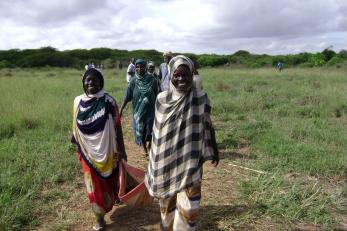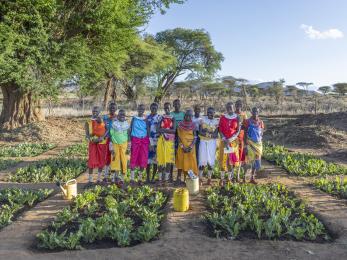What Really Matters for Resilience

Exploratory Evidence on the Determinants of Resilience to Food Security Shocks in Southern Somalia
What really matters for resilience?
When a combination of crises struck Somalia in 2010/11, famine left millions in need of emergency assistance. Drought, political instability, conflict, and food price spikes all contributed to the worst crisis the region had seen in 60 years, and more than a quarter-million people died.
However, the costs of the crisis were not equally borne: Despite the absence of humanitarian assistance in certain regions, some families adapted or quickly recovered. In short, they were more resilient. We wanted to know why.
Our new research pushes us beyond intuitive solutions to building resilience to find which factors help families bounce back after a shock. What we found:
- Women’s participation matters: Women who were more empowered over decisions in their homes had the confidence to negotiate with elites to gain access to essential services, like health clinics and markets – and thus better able to feed and care for their children.
- Extended social networks underpin resilience: During the crisis, families with broader social and economic relationships – particularly those that crossed clan lines – maintained or more quickly regained food security afterward.
- Livelihood diversity is not enough: To build resilience, we shouldn’t simply work to increase the number of income sources people have. Instead, we must promote independent income sources that are not all prone to the same types of risks.
At its core, a resilience approach forces us to turn key assumptions about our programs on their head: Rather than treating disasters like drought and conflict as “acts of God” outside our planning scope, the likely occurrence of crises should be central to our strategies and interventions. Our research with TANGO contributes to a growing body of evidence supporting what has been largely, to date, an intuitive argument for resilience: By increasing the capacities of communities to adapt and respond to crises – either natural or man-made – development programs can reduce vulnerability. And, perhaps, reduce the need for humanitarian aid in the future.
